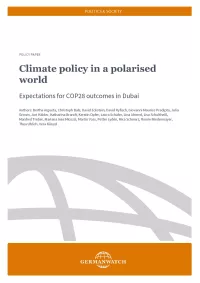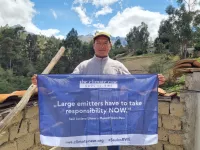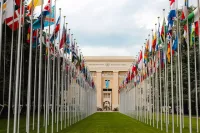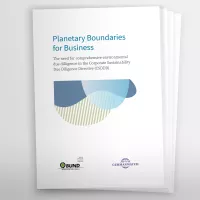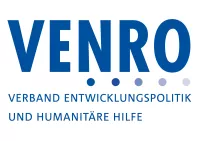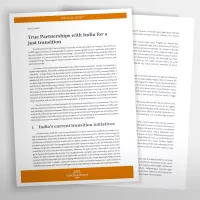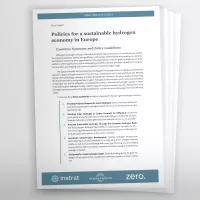Aktuelles (EntscheidungsträgerInnen)
We take a look at the geopolitical situation providing the frame for the UN climate talks COP28 in Dubai and identify the most important topics for the negotiations. We also outline what we expect COP28 to deliver, in terms of decisions that mitigate climate change, build resilience and provide finance for the people who need it.
Today, eight years ago, the Peruvian mountain guide and small farmer Saúl Luciano Lliuya filed his civil lawsuit against RWE at the regional court in Essen in Germany. What began back then has now become one of the world's most recognised precedents for the question of whether individual major emitters must pay for protection against climate risks.
The climate crisis continues to intensify worldwide. However, the main culprits of the climate crisis have so far shown a lack of financial support for dealing with loss and damage. The decision to set up a loss and damage fund at COP27 was a historic milestone after several developed countries had blocked it for many years. At COP28 in Dubai, the fund must now be made operable and filled adequately.
In this brief, BUND and Germanwatch examine cases of environmental degradation in value chains of European companies, for example impacts of land use, pesticides, or gas and oil operations. We also provide analyses of how proposals for the EU Corporate Sustainability Due Diligence Directive cover these impacts and highlight the pivotal role of the European Parliament in this matter.
Global consumption of raw materials at this point is not sustainable for the Earth. Germany consumes an above-average of resources compared to other countries. If they were to consume as much as Germany, it would take three Earths to satisfy global demand. We therefore welcome the German government’s initiative of a National Circular Economy Strategy to reduce raw materials demand, but press for adverse effects for the Global South to be addressed.
India’s transition towards a low-carbon economy is central to achieving global climate goals. How can international cooperation support Indian efforts? In our policy brief, we argue that “True Partnerships” between India and the Global North should put the poeple, equity, and climate action at the core of cooperation, to achieve a transition that is green and just.

